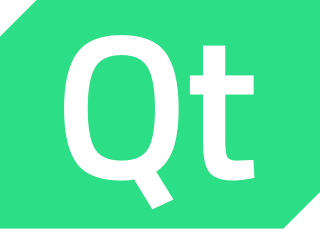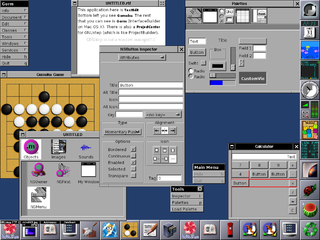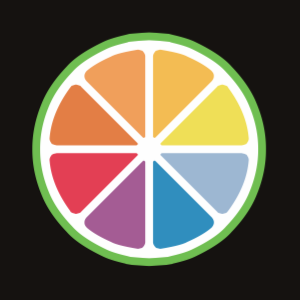An editor has nominated this article for deletion. You are welcome to participate in the deletion discussion , which will decide whether or not to retain it. |
| Developer(s) | The VCF Development Group |
|---|---|
| Final release | 0.9.8 / May 14, 2008 |
| Written in | C++ |
| Operating system | Windows/Win32, Mac OS X/Carbon (API) |
| Type | Development Library |
| License | BSD |
| Website | web |
The Visual Component Framework (VCF) is an abandoned open source project for development under Microsoft Windows and Apple Macintosh that is distributed under the BSD license. It is an advanced C++ application framework that makes it easier to produce GUI-based C++ applications. The framework is C++ design and has built in support for rapid application development. The framework is designed to be portable over multiple platforms and compilers.
The framework runs under Windows and Mac OS X, but as of April 6, 2006, the Mac port was incomplete, and a Linux port was still pending.
The project has made a large effort to support a variety of compilers and Integrated Development Environments (IDE), allowing the developer to work in whatever IDE/compiler they prefer. Compiler support on Windows covers Microsoft Visual C++ versions 6, 7, 7.1, and 8, along with the Borland C++ Compiler, the Intel C++ Compiler, and GCC. On Mac OS X GCC is supported using the Xcode IDE. A CodeWarrior port was completed, but stopped due to CodeWarrior dropping support for their x86 version of the compiler, and later for their PowerPC version as well.
The framework is licensed under the BSD license for any platform it runs on.
The framework is designed with several goals in mind. One is the ability to be ported to other platforms beyond Windows, such as Mac OS X, BeOS, or possibly even embedded operating systems like Windows CE.
The next goal is to provide solid support for dynamic programming such as that found in languages like Borland's Object Pascal, Java, or Objective-C. This included RTTI or reflection like classes that allow the developer to query all sorts of information about a given class instance at runtime.
Another goal was to design the UI classes so that visual programming or rapid application development was possible, similar to what is found in Delphi. This includes support for property editors, component editors, persistence of the UI state to and from an external text file, and making use of the dynamic features to create class instances on the fly and get and set the instance's registered properties.
In addition to this, the last goal was to provide support for a large number of common programming tasks when developing an application, particularly for larger scale applications. This includes support for various kinds of IO (in memory, file/disk, and so forth), thread support and various synchronization primitives like mutexes, semaphores, and conditions, Unicode string support, locale and internationalization support including localizing string resources, comprehensive resource support, and basic XML parsing. Graphics features include anti-aliased graphics using the Anti-Grain Graphics Library, full affine transformation support, images with direct access to the image's pixel bits. Additional application support features also include undo/redo classes, advanced support for Model View Controller.
As a general rule, the framework makes as much use as possible of the Standard Template Library, avoiding duplication of work on things like container classes, or string handling.
Where possible the framework builds on top of the native C++ RTTI support such as using dynamic_cast and typeid, as opposed to simply re-implementing it.
Most OS objects, such as files, threads, graphics devices, and window controls (or widgets), and so on, are implemented using a thin layer that talks directly to the specific native object. UI controls are not emulated for the most part, instead the framework uses native widgets in most places. Direct access to the underlying OS "handle" is allowed in cases where platform specific functionality is needed, allowing the developer to easily call the platform's native APIs.

Qt is cross-platform software for creating graphical user interfaces as well as cross-platform applications that run on various software and hardware platforms such as Linux, Windows, macOS, Android or embedded systems with little or no change in the underlying codebase while still being a native application with native capabilities and speed.

GNUstep is a free software implementation of the Cocoa Objective-C frameworks, widget toolkit, and application development tools for Unix-like operating systems and Microsoft Windows. It is part of the GNU Project.
In computing, cross-platform software is computer software that is designed to work in several computing platforms. Some cross-platform software requires a separate build for each platform, but some can be directly run on any platform without special preparation, being written in an interpreted language or compiled to portable bytecode for which the interpreters or run-time packages are common or standard components of all supported platforms.
C++Builder is a rapid application development (RAD) environment for developing software in the C++ programming language. Originally developed by Borland, as of 2009 it is owned by Embarcadero Technologies, a subsidiary of Idera. C++Builder can compile apps for Windows, iOS, macOS, and Android. It includes tools that allow drag-and-drop visual development, making programming easier by incorporating a WYSIWYG graphical user interface builder.

wxWidgets is a widget toolkit and tools library for creating graphical user interfaces (GUIs) for cross-platform applications. wxWidgets enables a program's GUI code to compile and run on several computer platforms with minimal or no code changes. A wide choice of compilers and other tools to use with wxWidgets facilitates development of sophisticated applications. wxWidgets supports a comprehensive range of popular operating systems and graphical libraries, both proprietary and free, and is widely deployed in prominent organizations.
Delphi is a general-purpose programming language and a software product that uses the Delphi dialect of the Object Pascal programming language and provides an integrated development environment (IDE) for rapid application development of desktop, mobile, web, and console software, currently developed and maintained by Embarcadero Technologies.

The Standard Widget Toolkit (SWT) is a graphical widget toolkit for use with the Java platform. It was originally developed by Stephen Northover at IBM and is now maintained by the Eclipse Foundation in tandem with the Eclipse IDE. It is an alternative to the Abstract Window Toolkit (AWT) and Swing Java graphical user interface (GUI) toolkits provided by Sun Microsystems as part of the Java Platform, Standard Edition (J2SE).
Object Pascal is an extension to the programming language Pascal that provides object-oriented programming (OOP) features such as classes and methods.

Free Pascal Compiler (FPC) is a compiler for the closely related programming-language dialects Pascal and Object Pascal. It is free software released under the GNU General Public License, with exception clauses that allow static linking against its runtime libraries and packages for any purpose in combination with any other software license.
MacApp is the object oriented application framework for Apple Computer's discontinued classic Mac OS. Released in 1985, it transitioned from Object Pascal to C++ in 1991's version 3.0 release, which offered support for much of System 7's new functionality. MacApp was used for a variety of major applications, including Adobe Photoshop and SoftPress Freeway. Microsoft's MFC and Borland's OWL were both based directly on MacApp concepts.
gtkmm is the official C++ interface for the popular GUI library GTK. gtkmm is free software distributed under the GNU Lesser General Public License (LGPL).

Code::Blocks is a free, open-source cross-platform IDE that supports multiple compilers including GCC, Clang and Visual C++. It is developed in C++ using wxWidgets as the GUI toolkit. Using a plugin architecture, its capabilities and features are defined by the provided plugins. Currently, Code::Blocks is oriented towards C, C++, and Fortran. It has a custom build system and optional Make support.

Google Web Toolkit, or GWT Web Toolkit, is an open-source set of tools that allows web developers to create and maintain JavaScript front-end applications in Java. It is licensed under Apache License 2.0.

JUCE is an open-source cross-platform C++ application framework, used for the development of desktop and mobile applications. JUCE is used in particular for its GUI and plug-ins libraries. It is dual licensed under the GPLv3 and a commercial license.

fpGUI, the Free Pascal GUI toolkit, is a cross-platform graphical user interface toolkit developed by Graeme Geldenhuys. fpGUI is open source and free software, licensed under a Modified LGPL license. The toolkit has been implemented using the Free Pascal compiler, meaning it is written in the Object Pascal language.

U++, formally known as Ultimate++ - is a C++ RAD framework that aims to reduce the code complexity of typical desktop applications by extensively exploiting C++ features. Programs created with it can work on multiple operating systems and hardware architectures without the need to write platform-specific code.
Nana is a cross-platform C++ library for creating graphical user interfaces. It uses a platform-independent API and currently supports Windows, Linux and FreeBSD.
Flutter is an open-source UI software development kit created by Google. It is used to develop cross platform applications from a single codebase for any web browser, Fuchsia, Android, iOS, Linux, macOS, and Windows. First described in 2015, Flutter was released in May 2017.
This page details the history of the programming language and software product Delphi.